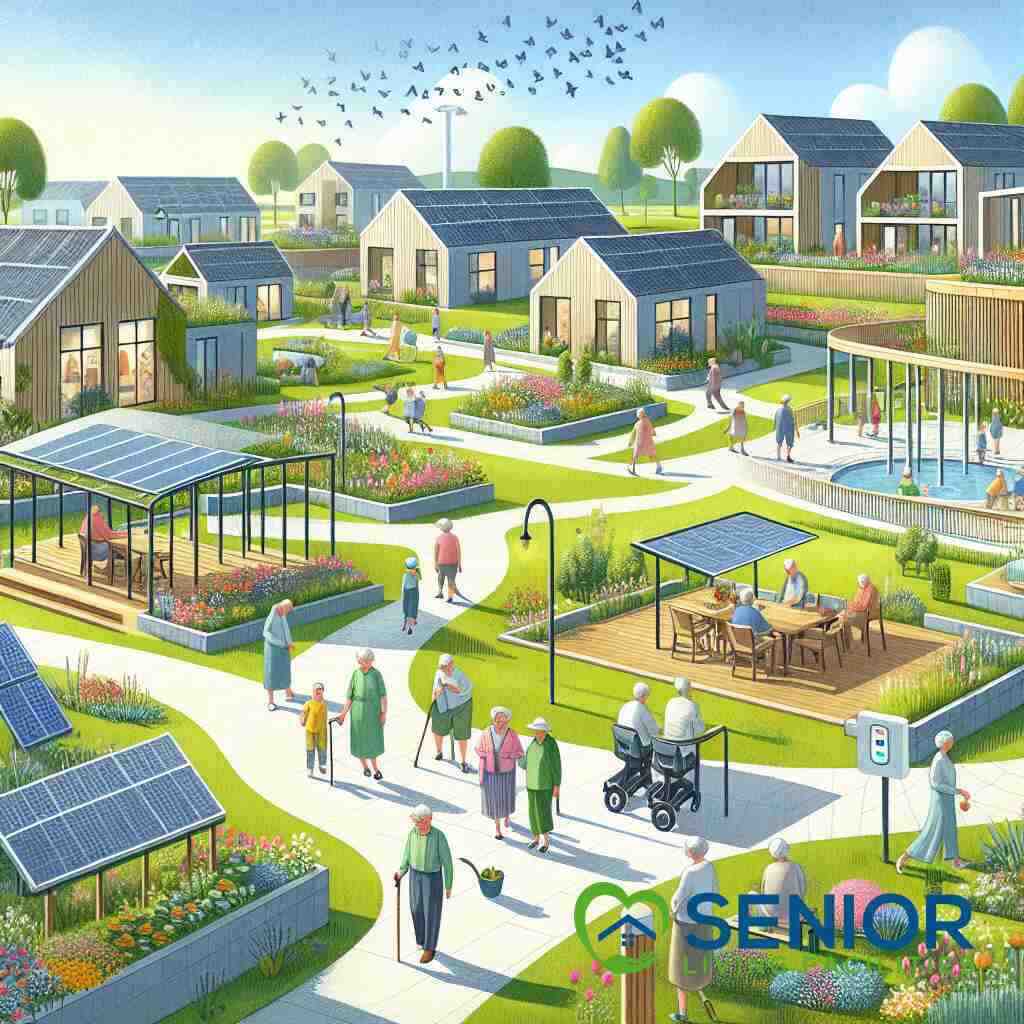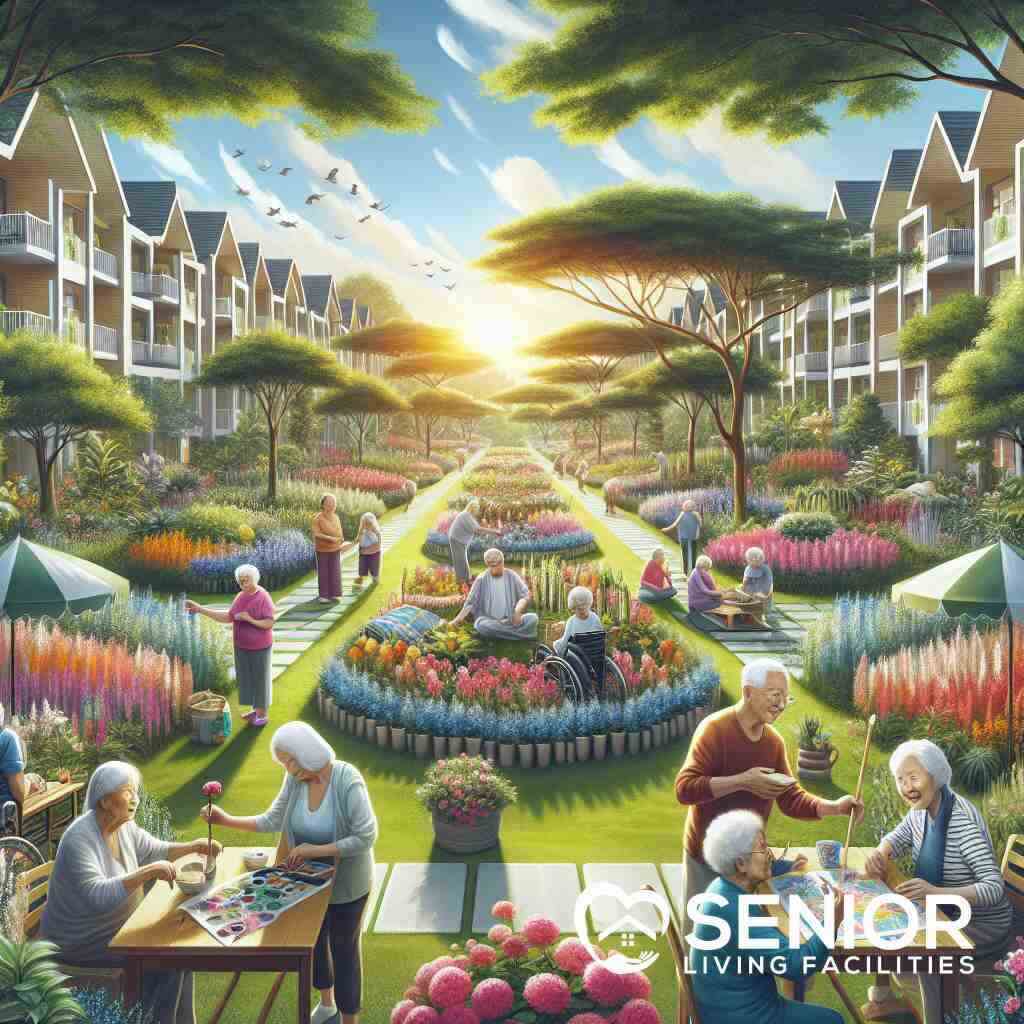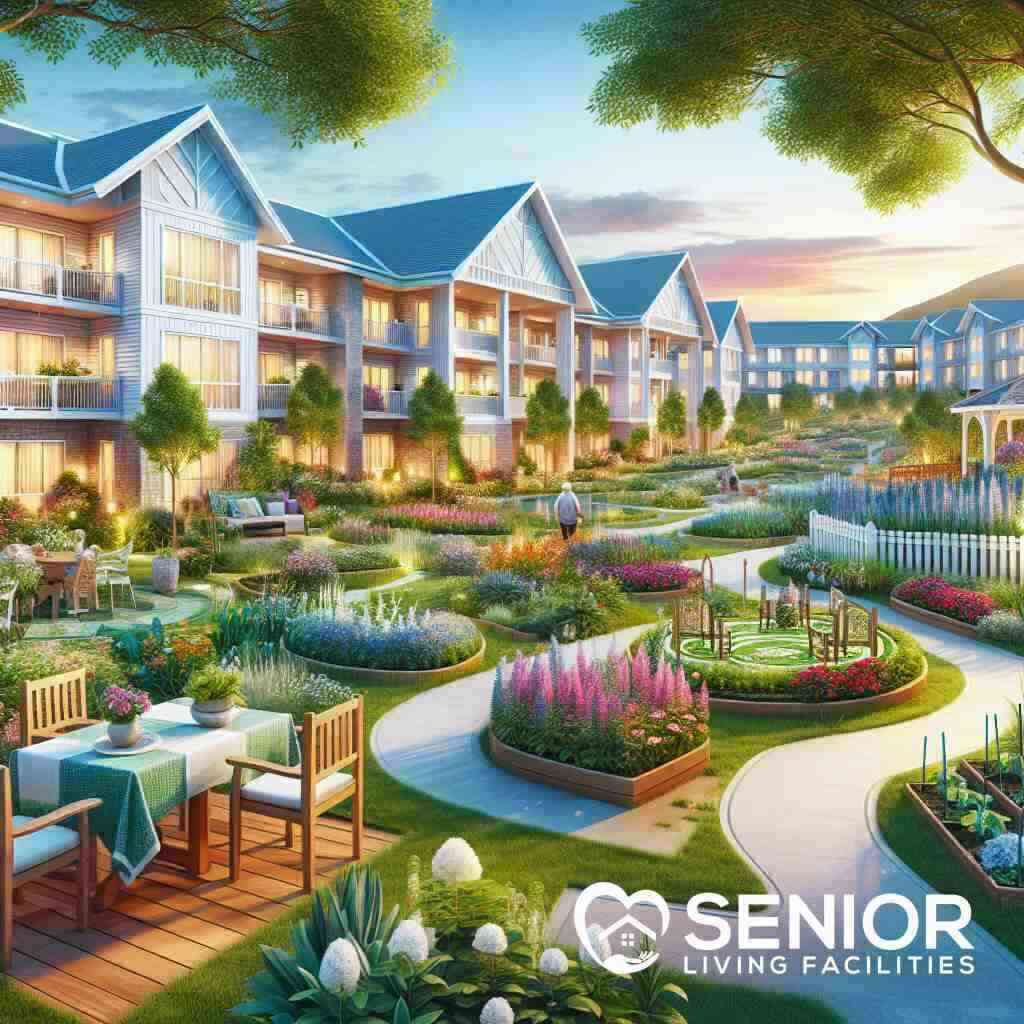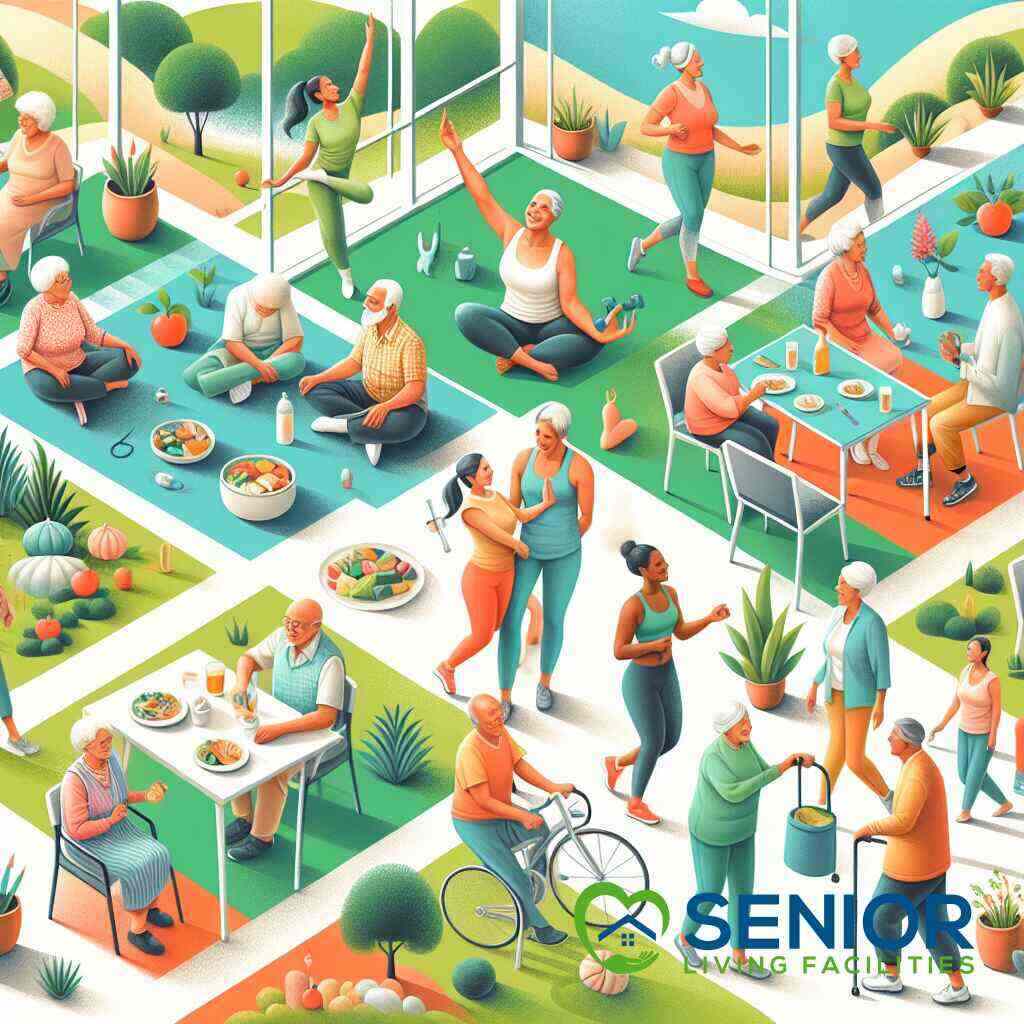
Wellness Programs Shaping Healthier Senior Lives
March 2, 2024
Introduction to a Healthy Senior Lifestyle
The importance of wellness programs in senior living
Wellness programs in senior living are not just a trend but a necessity for enhancing the quality of life for older adults. These programs encompass a broad range of activities and initiatives designed to promote physical, mental, and social well-being among seniors. With the aging process comes various health challenges, making it crucial for senior living facilities to implement comprehensive wellness strategies. These programs aim to encourage seniors to lead active and engaged lives, fostering a sense of community and belonging. From senior fitness classes to nutritional counseling, wellness programs tailored to the needs of older adults can significantly improve their health, happiness, and overall life satisfaction.
Understanding the holistic approach to senior health
A holistic approach to senior health recognizes the interconnectedness of physical, mental, and social factors in overall well-being. This perspective sees the individual as a whole, focusing on maintaining or improving overall health rather than merely treating specific ailments. It entails a comprehensive view of senior wellness, including preventive health care, nutrition, fitness, emotional support, and social activities. By addressing these myriad aspects, senior living facilities can provide an environment that supports healthy aging. A holistic approach not only helps in managing existing health conditions but also in preventing new ones, thereby improving the quality and longevity of seniors’ lives.
How Senior Living Facilities supports senior wellness
Senior Living Facilities is committed to promoting a healthy lifestyle among older adults through a diverse array of wellness programs tailored to meet the unique needs of seniors. Recognizing the importance of a holistic approach, our platform ensures that senior living communities offer much more than just medical care. We advocate for environments that offer opportunities for physical activity, such as customized exercise programs and senior yoga sessions, alongside nutritional guidance to ensure balanced diets tailored to the needs of older adults.
In addition to physical health, we emphasize mental and emotional wellness by supporting initiatives such as senior mindfulness practices and providing resources for emotional support. Our platform facilitates access to wellness activities that foster social engagement, helping seniors feel connected and part of a community.
By partnering with senior living communities across all 50 states, Senior Living Facilities streamlines the process of finding the perfect fit for each individual’s lifestyle and wellness goals. Our commitment goes beyond facilitating connections, we strive to ensure that every senior living community we recommend embodies our dedication to enhancing the lives of older adults through comprehensive wellness programs.
Physical Wellness in Senior Living
Exercise programs for seniors
The cornerstone of physical wellness for older adults in senior living communities revolves around tailored exercise programs designed to meet their unique physical capabilities and health needs. These programs play a pivotal role in maintaining and improving seniors’ strength, mobility, and balance, thereby enhancing their overall quality of life. From low-impact exercises such as walking and swimming to more structured classes like senior yoga sessions, these programs aim to cater to the diverse interests and health conditions of senior residents. By participating in regular physical activity, seniors not only see improvements in their physical health but also experience upliftment in their mental and emotional well-being.
Senior fitness classes and their benefits
Senior fitness classes offer a comprehensive approach to physical wellness, targeting key areas such as cardiovascular health, strength, flexibility, and balance. These classes are specifically designed with the seniors’ safety and physical capabilities in mind, ensuring that workouts are both effective and enjoyable. The benefits of participating in senior fitness classes extend beyond physical health improvements, they also provide a social setting in which seniors can connect with their peers, combating loneliness and fostering a strong sense of community. Moreover, regular participation in these classes can lead to a reduction in the risk of chronic diseases, better management of existing health conditions, and an overall improvement in the quality of life for seniors.
Physical therapy in senior living
Physical therapy in senior living communities is a vital component of wellness programs geared towards improving residents’ mobility, alleviating pain, and facilitating functional independence in activities of daily living. Customized physical therapy sessions, provided by skilled health care professionals, play a crucial role in supporting seniors through recovery from surgeries, injuries, or managing chronic illnesses. The specialized therapeutic exercises and treatments not only aim to restore physical function but also empower seniors to participate actively in other wellness activities within the community. Nutrition for older adults is another aspect that physical therapists often address, ensuring that dietary considerations are aligned with residents’ rehabilitation goals for a holistic approach to wellness.
Promoting active aging programs
Active aging programs in senior living facilities emphasize the importance of staying physically, socially, and mentally active as key elements of aging well. These programs are designed to offer a variety of activities that cater to the interests and abilities of seniors, encouraging them to lead a vibrant and engaged lifestyle. From group outings and walking clubs to dance classes and gardening groups, active aging programs provide ample opportunities for seniors to explore new hobbies, develop skills, and maintain a sense of purpose. By promoting an active lifestyle, these programs not only enhance physical health but also contribute significantly to the overall well-being, supporting seniors in leading fulfilling lives amidst a supportive community environment.
Nutritional Well-being for Older Adults
Senior Wellness and Nutrition Programs
At the heart of senior wellness is the emphasis on proper nutrition, which significantly impacts the health and overall quality of life for older adults. Recognizing this, Senior Living Facilities across the nation have developed comprehensive senior wellness and nutrition programs geared specifically toward meeting the unique dietary requirements of the elderly population. These programs not only focus on providing balanced and nutritious meals but also educate seniors on the importance of maintaining a healthy diet. Nutritionists and dietitians play a pivotal role in these programs, crafting meal plans that cater to individual health conditions, such as diabetes or heart disease, ensuring that every meal supports the residents’ overall well-being.
Nutrition for Older Adults: Tailoring Diets to Needs
The nutritional requirements of older adults differ significantly from those of younger individuals due to various factors like changes in metabolism and the presence of chronic conditions. Senior wellness programs prioritize the tailoring of diets to meet these specific needs. This approach involves personalizing meal plans to enhance nutrient intake, such as increasing calcium and vitamin D for bone health or incorporating high-fiber foods for digestive wellness. Ensuring the availability of nutrient-dense foods that are also easy to eat is crucial for addressing the challenges some seniors may face with chewing or digestion. Through senior living facilities, communities for seniors 55+ provide access to nutritional counseling and support, empowering older adults to make informed dietary choices that promote health and longevity.
The Role of Nutrition in Preventive Health Care for Seniors
Nutrition plays a transformative role in preventive health care for seniors, serving as a foundational element in the fight against chronic disease and the preservation of health as one ages. Quality nutrition has been linked to a reduced risk of several age-related diseases, such as heart disease, osteoporosis, and type 2 diabetes. Recognizing this, wellness programs in senior living communities emphasize the importance of adopting a healthy diet as a key strategy in preventive health care. By incorporating a variety of nutrient-rich foods, these programs aim to bolster the immune system, maintain healthy body weight, and enhance overall vitality among seniors. Furthermore, the integration of preventive health care measures such as regular wellness assessments and health screenings complements nutritional efforts, ensuring a holistic approach to preserving senior health and well-being. Through education and access to nutritious meals, senior living communities are equipping older adults with the tools they need to lead healthier lives, validate the profound impact of nutrition on their health outcomes.
Mental Health and Emotional Wellness
Mental health in senior living
Mental health is a critical component of overall wellness, especially for seniors transitioning into senior living communities. It’s essential for these communities to recognize and address the unique mental health challenges faced by older adults, including depression, anxiety, and cognitive decline. Tailored mental health programs can offer significant support, providing residents with access to counseling services, therapy sessions, and support groups. These initiatives encourage open discussions about mental health, helping to demystify and destigmatize these issues among the elderly population. Effective mental health support in senior living not only aids in the emotional adjustment to new living environments but also enhances the quality of life by fostering resilience, social connections, and a sense of purpose.
Senior mindfulness practices and their impact
Mindfulness practices, such as meditation, deep breathing exercises, and yoga, have shown promising results in improving mental and emotional well-being among seniors. These practices encourage a focus on the present moment, helping to reduce stress, anxiety, and feelings of loneliness, which can be prevalent in senior living communities. Linking mindfulness to mental health in senior living, these activities offer a peaceful retreat from the daily challenges, promoting a sense of inner peace and emotional stability. Incorporating regular mindfulness sessions into the wellness programs can significantly impact residents’ mental health, including improved sleep quality, enhanced mood, and better cognitive functioning. As seniors engage in these practices, the cumulative benefits contribute to a more contented, peaceful state of mind, underscoring the profound impact of mindfulness on their overall quality of life.
Emotional wellness in the elderly: Strategies for support
Supporting emotional wellness in seniors involves a multifaceted approach tailored to individual needs and preferences. Senior living facilities prioritize the creation of a nurturing environment where all residents feel valued, understood, and connected. Strategies include personalized care plans that account for the emotional and psychological aspects of aging, such as life-transition counseling, memory care programs, and therapeutic activities that foster self-expression, like art and music therapy. Ensuring emotional wellness in the elderly also means providing opportunities for social interaction and engagement, which combat isolation and contribute to a vibrant community life. Training staff to recognize signs of emotional distress and to respond with empathy and professionalism is another critical component of comprehensive support. Collectively, these strategies ensure that senior living communities are places where emotional wellness is nurtured, allowing residents to thrive even in the face of the challenges associated with aging.
Social Engagement and Wellness
Social wellness for seniors
Social wellness is a crucial aspect of senior health, contributing significantly to both their longevity and quality of life. Engaging in meaningful social interactions can help mitigate feelings of loneliness and isolation, conditions often faced by the elderly population. Senior Living Facilities understands the critical role social connections play in maintaining a healthy lifestyle for older adults. Therefore, our senior living communities are designed to foster social interactions through communal spaces and organized activities that encourage residents to connect, share experiences, and form lasting friendships. By prioritizing social wellness, Senior Living Facilities aims to ensure that all seniors feel part of a vibrant, supportive community, where their social needs are not just met but exceeded.
Wellness activities in senior communities
Wellness activities in senior communities are tailored to encourage participation at all levels, engaging residents in enjoyable and fulfilling experiences. Senior Living Facilities boasts a wide range of wellness activities, from group exercise classes and art workshops to social clubs and community outings. These activities are not only fun but also integral to fostering a sense of belonging and community among residents. By engaging in shared interests and hobbies, seniors can discover new passions, revive old ones, and enjoy the camaraderie that comes with group activities. Wellness activities are carefully selected to cater to the diverse interests of our residents, ensuring everyone has the opportunity to participate in something they love, thereby enhancing their overall well-being.
Creating a sense of community and belonging
Creating a strong sense of community and belonging within senior living facilities is essential for the emotional and social wellness of seniors. Senior Living Facilities places a strong emphasis on building close-knit communities where every resident feels valued and connected. We achieve this through regular community meetings, open forums for feedback, and by encouraging residents to take active roles in the planning and execution of social activities. Our facilities are designed with shared spaces that are welcoming and accessible, promoting casual interactions and deeper connections among residents. By nurturing an environment of mutual support and respect, Senior Living Facilities ensures that seniors not only live in a place where they are cared for but also truly belong. This sense of belonging is vital for seniors’ happiness and overall well-being, making it a core component of our wellness strategy for seniors.
Health Education and Wellness Coaching
Senior health education: Empowerment through Knowledge
The implementation of health education for seniors is a cornerstone of empowering older adults to take charge of their own well-being. By providing the elderly with knowledge about their health, Senior Living Facilities serve as a vital resource in the landscape of senior care. Health education covers a broad range of topics, from managing chronic conditions to understanding mental health’s impact on physical well-being. A well-informed senior is better equipped to communicate with healthcare providers, make informed decisions about their health care, and adopt lifestyle choices that promote long-term wellness. Moreover, health education programs tailored to seniors address the specific challenges they face, demystifying complex medical information and presenting it in an accessible manner. This empowers seniors with the knowledge they need to maintain and improve their health, enhancing their independence and quality of life.
Wellness coaching for seniors
Wellness coaching has emerged as a transformative approach to encouraging healthy lifestyle choices among older adults. This personalized service works hand in hand with seniors to identify health goals, develop realistic plans for reaching those goals, and navigate the challenges of aging. Coaches specialized in senior wellness are not just advisors, they’re partners in a journey toward better health, offering support, motivation, and accountability every step of the way. Whether it’s improving nutrition, increasing physical activity, or managing stress, wellness coaching addresses the unique needs of each individual. These programs, often available through senior living communities, are instrumental in fostering a proactive attitude toward health, encouraging seniors to not only live longer but to thrive.
Wellness workshops and seminars
Senior Living Facilities recognizes the power of community learning and offers a variety of wellness workshops and seminars designed to engage and educate seniors in a group setting. These events cover a vast array of topics, including preventative health measures, nutritional cooking demonstrations, and sessions on mental resilience. Workshops provide an interactive and supportive environment where seniors can share their experiences, learn from their peers, and acquire new skills relevant to their health and wellness. Seminars, led by experts in fields related to aging and senior health, offer insights into the latest research and strategies for maintaining a healthy lifestyle. Participating in these events not only enriches seniors’ knowledge but also strengthens the community bonds within senior living facilities, creating a culture of health and well-being that benefits everyone involved.
Preventive and Holistic Health Measures
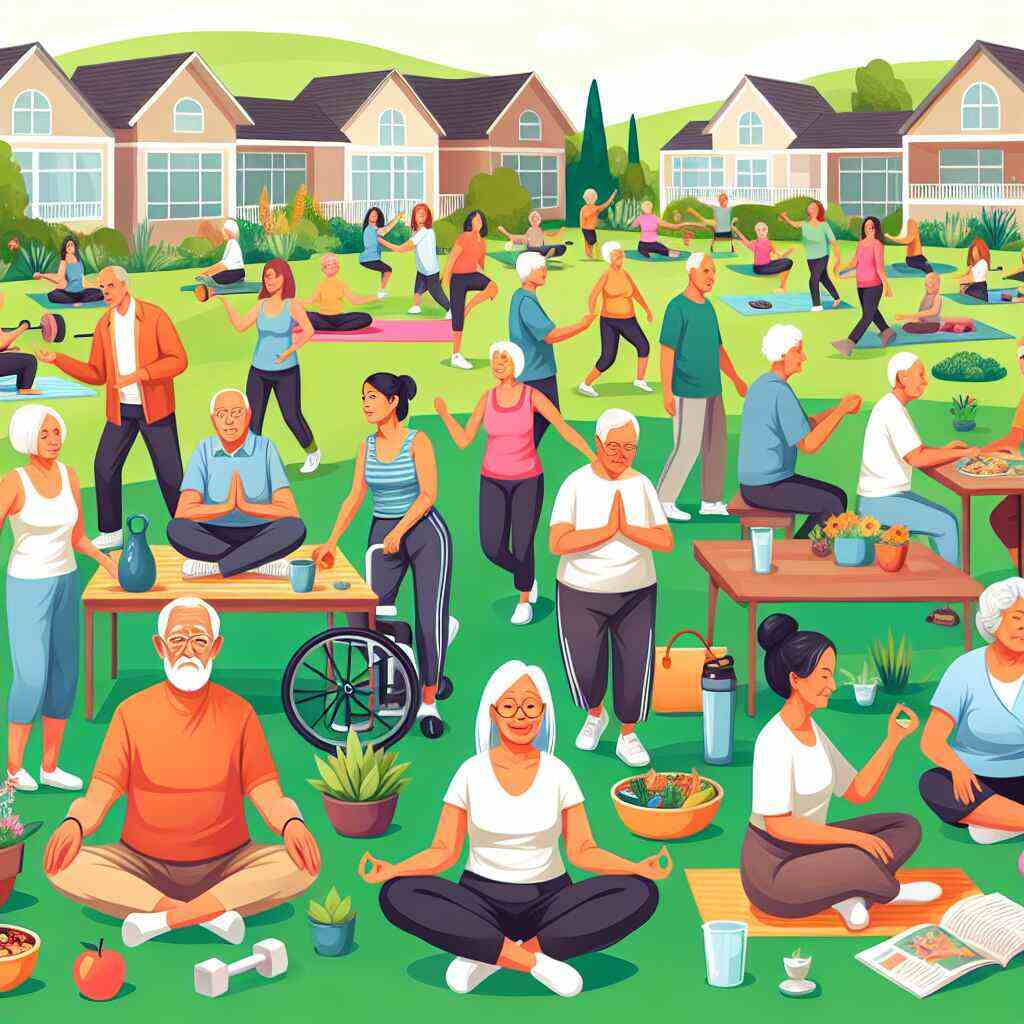
Preventive Health Care for Seniors
Preventive health care for seniors is an integral component of fostering a robust, healthy lifestyle as individuals age. By focusing on preventive measures, senior living facilities can greatly reduce the incidence of chronic diseases and mobility issues that often plague the elderly. These measures encompass a wide array of interventions, from vaccinations and regular health screenings to proactive management of risk factors for diseases like diabetes and hypertension. Regularly scheduled health care assessments enable early detection of potential health issues, allowing for timely intervention and management. Furthermore, preventive health care in senior living facilities is complemented by educational programs that equip seniors with the knowledge to make informed health decisions, promoting a lifestyle that minimizes risks and enhances well-being.
Holistic Wellness for Seniors: A Comprehensive Approach
Holistic wellness for seniors embodies a comprehensive approach, considering the entire spectrum of physical, mental, and social factors contributing to an individual’s health. Senior Living Facilities understands that true wellness transcends the absence of illness, emphasizing the cultivation of a lifestyle that fosters vitality, contentment, and longevity. This approach incorporates physical activity tailored to seniors’ capability levels, nutritional plans that cater to their specific health conditions, and mental health services that address emotional well-being. Additionally, holistic wellness acknowledges the significance of social connections, facilitating activities and spaces that nurture community ties. By adopting this multifaceted view, senior living communities can offer programs and services that cater to the diverse aspects of seniors’ lives, empowering them to lead fuller, more satisfying post-retirement years.
Senior Wellness Assessments
Senior wellness assessments are a pivotal tool in understanding and optimizing the well-being of older adults residing in senior living facilities. These comprehensive evaluations cover various health dimensions, including physical capability, mental acuity, emotional health, and social engagement levels. The insights gained from senior wellness assessments allow caregiving teams to create personalized wellness plans that address the specific needs and goals of individual residents. Regular assessments ensure that wellness strategies remain relevant and effective, adapting to changes in seniors’ health and preferences. Moreover, these assessments offer seniors and their families peace of mind, demonstrating a proactive stance toward maintaining and enhancing quality of life in senior living communities. Through thorough and periodic wellness assessments, Senior Living Facilities are committed to upholding and enriching the health and happiness of their elderly residents, ensuring a thriving community where seniors can enjoy their golden years to the fullest.
Innovative Wellness Strategies in Senior Living
Wellness initiatives in senior housing
The landscape of wellness within senior housing is constantly evolving, driven by innovative initiatives designed to improve the lives of residents. From comprehensive fitness programs that cater to varying degrees of mobility to cognitive health activities that stimulate mental agility, senior living communities are embracing a holistic view of wellness. A key trend is the integration of nature and outdoor activities, recognizing the profound impact that connection with the natural world has on mental and physical health. Community gardens, therapeutic landscaping, and nature walk programs not only provide physical exercise but also enhance emotional well-being amongst seniors. Additionally, creative arts programs tap into the therapeutic benefits of self-expression, granting residents new outlets for creativity and social interaction. These initiatives underscore the commitment of senior housing to not just extend life, but to enrich its quality, fostering environments where seniors can thrive in every aspect of their well-being.
Incorporating technology into senior wellness programs
Technology is playing a transformative role in senior wellness programs, offering innovative solutions that cater to the health and well-being of older adults. Digital platforms now facilitate virtual active aging programs, allowing seniors to participate in fitness classes, educational courses, and social gatherings from the comfort of their living spaces. Wearable devices monitor vital health metrics in real-time, empowering seniors and caregivers with data to manage and prevent chronic conditions effectively. Furthermore, cognitive training applications provide engaging brain exercises, supporting mental acuity and delaying the progression of cognitive decline. Telehealth services have also become integral, ensuring seniors have access to medical consultations and psychological support without the challenges of in-person visits. By leveraging technology, senior living communities are optimizing wellness strategies, making health care more accessible, and enhancing the overall resident experience.
Case studies: Success stories of wellness strategies
A myriad of success stories highlight the positive impact of comprehensive wellness strategies in senior living communities. One notable example is a community that implemented a multifaceted fitness program, combining strength training, balance exercises, and aquatic workouts. Within months, residents reported significant improvements in mobility and a decrease in falls, leading to a better quality of life and increased independence. Another success story involves the introduction of a nutrition awareness initiative focused on heart-healthy diets. Through workshops and cooking demonstrations, residents learned about the importance of nutritional choices in managing cardiovascular health. The program resulted in a notable improvement in residents’ blood pressure and cholesterol levels, demonstrating the power of diet in preventing and managing chronic illnesses. Lastly, a senior community that introduced a robust social engagement program, including interest clubs and community service projects, saw a remarkable decrease in reports of loneliness and depression among its residents. These case studies underscore the effectiveness of holistic wellness strategies, illustrating that with the right initiatives, senior living communities can significantly enhance the health and happiness of their residents.
Challenges and Solutions in Senior Wellness
Addressing Common Barriers to Senior Wellness
In the pursuit of holistic health for seniors, certain barriers can impede their access to quality wellness programs. These include physical limitations, financial constraints, and a lack of awareness about available programs. To counter these challenges, Senior Living Facilities actively seeks innovative solutions that make wellness programs more accessible and effective for the elderly population. One approach is the developement of low-impact fitness classes and therapeutic activities tailored to individuals with mobility issues, ensuring that everyone can participate, regardless of their physical condition. Additionally, offering a range of financial assistance programs helps alleviate the cost burden, making vital wellness programs accessible to a broader range of seniors. Increasing efforts in outreach and education is also fundamental in raising awareness about the health benefits for seniors that come through active participation in these tailored programs.
Designing Accessible and Inclusive Programs
Ensuring every senior has the opportunity to participate in wellness activities necessitates a thoughtful approach to program design. Senior Living Facilities strives to create an environment where accessibility and inclusivity are at the forefront. This involves developing programs that cater to the diverse needs and preferences of older adults, including those with disabilities or chronic health conditions. Utilizing feedback from residents, these programs are continuously adapted to ensure they meet the evolving needs of the senior living healthy lifestyle community, fostering an atmosphere where every individual feels valued and empowered to take active steps toward their personal wellness goals. To further encourage inclusivity, these facilities also ensure that communal spaces and equipment are ADA-compliant, providing unhindered access for all residents.
Support Systems and Resources for Challenges
Behind every successful wellness program in senior living communities are strong support systems and resources designed to navigate the challenges faced by residents. Senior Living Facilities recognize the importance of providing comprehensive support, not just in the form of physical health programs, but also through mental and emotional wellness resources. By offering personalized wellness coaching, seniors receive guidance tailored to their unique health profiles and life circumstances, enhancing their ability to overcome obstacles to wellness. Additionally, creating strong peer support networks within communities encourages a culture of mutual assistance and accountability, making wellness a shared journey. Access to professional services, such as nutrition counseling and health education workshops, equips residents with the knowledge and tools they need to make informed decisions about their health. By investing in these robust support systems, Senior Living Facilities ensure that seniors not only face their wellness challenges with confidence but also receive the encouragement and resources necessary to achieve their health goals.
Future of Wellness Programs in Senior Living
Emerging trends in senior wellness
The landscape of senior wellness is rapidly evolving, with emerging trends poised to redefine the approach to health and well-being in the golden years. One significant trend is the increased focus on technology-driven solutions, such as wearable fitness trackers that monitor vital signs and activity levels in real-time. These innovations enable personalized wellness plans that adapt to the changing health needs of seniors, making preventive care more accessible and effective. Additionally, there is a growing emphasis on mental health, with senior living communities incorporating mindfulness practices and cognitive therapies into their wellness programs. Another noteworthy trend is the push towards environmental wellness, where senior living facilities are designed with green spaces, promoting interaction with nature as a form of therapy. These emerging trends signal a shift towards a more integrated, technology-infused approach to senior wellness, promising a future where older adults can enjoy healthier, more fulfilling lives.
The integration of wellness in long-term care facilities
Long-term care facilities are increasingly recognizing the vital role of comprehensive wellness programs in enhancing the quality of life for their residents. This integration involves adopting a holistic model of care that addresses not just the physical, but also the mental, emotional, and social needs of seniors. Facilities are implementing programs that combine physical therapy with nutritional guidance, mental health support, and opportunities for social engagement, creating a supportive environment conducive to wellness. Moreover, the use of personalized care plans, informed by regular wellness assessments, ensures that each resident receives the care and support tailored to their unique health profile. This integration of wellness into the fabric of long-term care facilities underscores a commitment to not just extend life but to enrich its quality, affirming the importance of a holistic approach to senior care.
Predictions for the evolution of senior wellness programs
Looking ahead, senior wellness programs are expected to undergo significant evolution, driven by advancements in technology, a deeper understanding of aging, and an increasing focus on preventive health. One major prediction is the rise of artificial intelligence (AI) in senior care, with AI-driven algorithms offering personalized wellness recommendations and predictive insights into health trends. Virtual reality (VR) is also poised to make a significant impact, offering immersive experiences that can aid in cognitive stimulation, physical rehabilitation, and even social connection. Furthermore, as research continues to underscore the link between lifestyle factors and longevity, wellness programs are likely to emphasize sustainable, health-promoting behaviors more heavily, from diet and exercise to stress management and social activities. Lastly, the future of senior wellness will likely see a greater emphasis on community-based approaches, where living environments are designed to naturally encourage active, engaged lifestyles. Together, these developments promise to revolutionize senior wellness, making the later years not only longer but richer and more vibrant.
Conclusion: Commitment to Enhancing Senior Lives

Recap of the importance of wellness programs in senior living
Wellness programs serve as the foundation for a fulfilling and vibrant life for seniors, emphasizing the importance of a comprehensive approach to health and well-being. These initiatives, ranging from fitness classes and nutritional counseling to mental health support and social activities, constitute a vital component of senior living. They not only address the physical and medical needs of older adults but also cater to their emotional, social, and mental health, marking a significant shift toward more holistic care practices. The evolution of wellness programs in senior living settings underscores a broader understanding of wellness, highlighting the intrinsic link between an active, engaged lifestyle and overall senior health improvement. These programs have proven instrumental in enhancing the quality of life, fostering a sense of community, and promoting longevity among seniors, making them a fundamental aspect of contemporary senior living facilities.
Senior Living Facilities’ role in promoting a healthy lifestyle
Senior Living Facilities has been at the forefront of revolutionizing senior care by spotlighting the critical role of wellness programs in supporting a healthy lifestyle for older adults. With a focus on personalized care, the platform showcases a plethora of senior living options equipped with comprehensive wellness strategies designed to meet the unique needs of each resident. From facilitating access to customized fitness regimes and nutritious meal plans to organizing mental wellness sessions and social gatherings, Senior Living Facilities ensures that seniors have the resources they need to thrive. The platform’s commitment to promoting these programs highlights an essential acknowledgment: a healthy lifestyle extends beyond physical health, encompassing mental, emotional, and social wellness. By prioritizing these aspects, Senior Living Facilities plays a pivotal role in encouraging seniors to lead more active, fulfilling lives, reinforcing the concept of wellness as a multifaceted, holistic endeavor.
The ongoing journey toward improved senior wellness
The journey toward achieving improved wellness for seniors is ongoing, marked by continuous innovation, adaptation, and learning. As we look to the future, the role of wellness programs in senior living is poised for further evolution, driven by cutting-edge research, technological advancements, and a deepening understanding of the aging process. Senior Living Facilities remains dedicated to navigating this evolving landscape, leveraging new insights and tools to enhance its wellness offerings. The aim is not just to adapt to emerging trends but to anticipate and shape them, ensuring that seniors everywhere have access to the highest quality of life possible. This commitment to wellness represents more than just a service-it’s a testament to the belief in the inherent value and potential of every senior to lead a rich, vibrant life, irrespective of age. As we move forward, Senior Living Facilities will continue to champion the cause of senior wellness, fostering environments where older adults can not only live but truly flourish.
Content: In conclusion, the integration and promotion of wellness programs within senior living communities are indispensable for ensuring that seniors not only age gracefully but do so with vigor, happiness, and a sense of purpose. Senior Living Facilities stands as a beacon in this endeavor, providing guidance, support, and unparalleled access to living arrangements that place wellness at their core. As we embrace the future, the commitment to enhancing senior lives through comprehensive wellness programs remains unwavering, promising a brighter, healthier tomorrow for our senior population.
